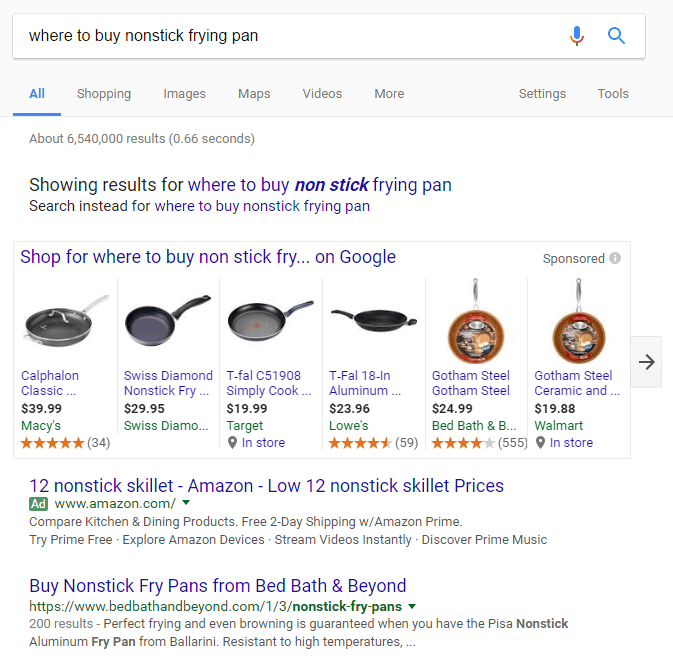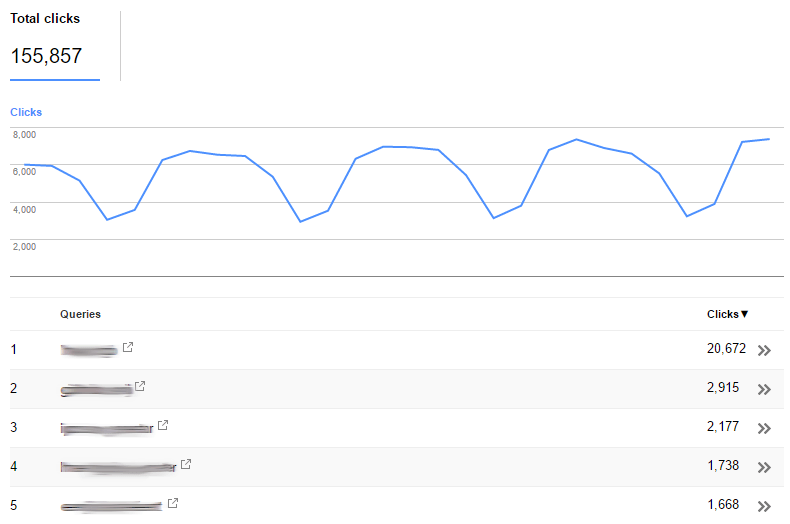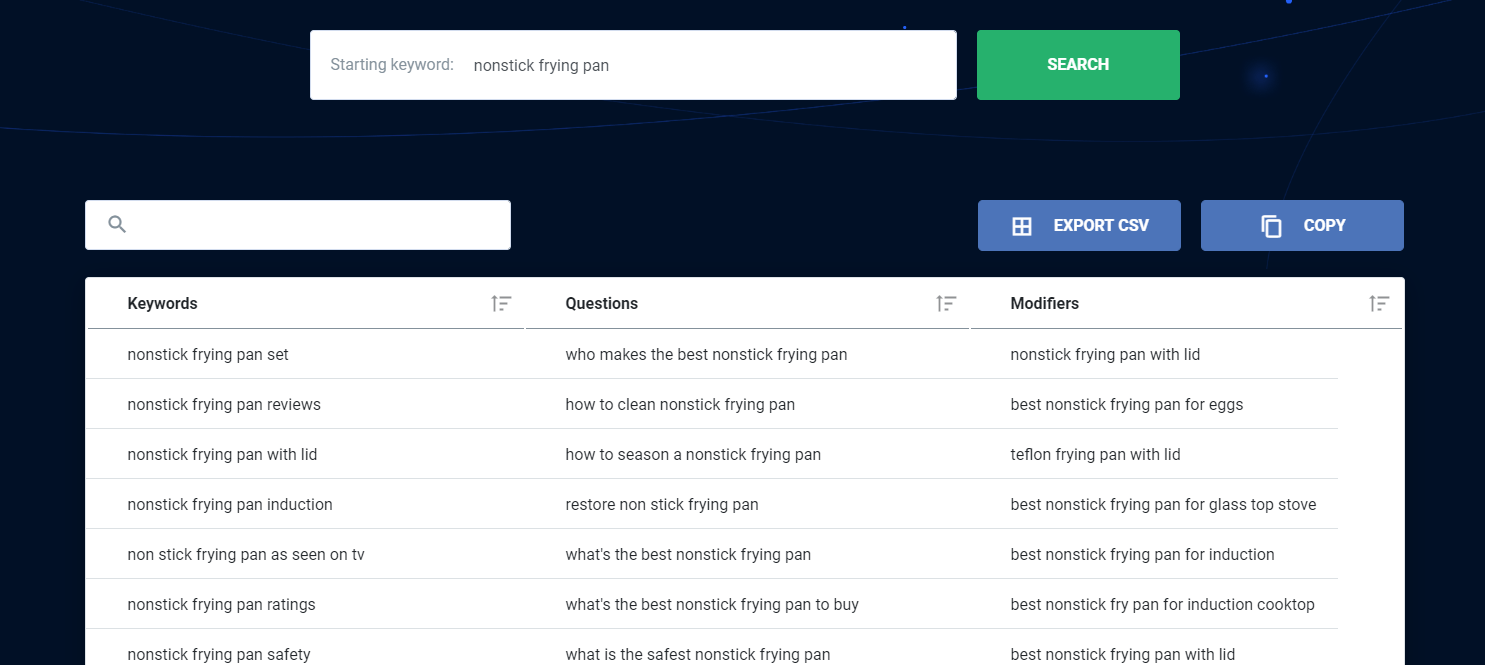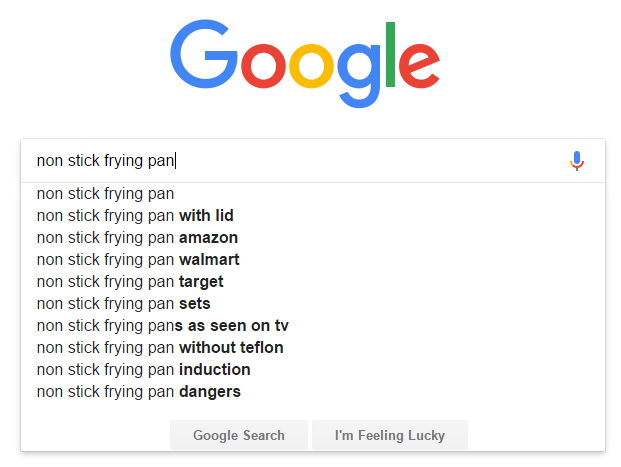The Difference between Keywords and Search Queries
Learning all of the nuances of the field is tedious, and there’s a lot to learn before you can comfortably invest your company’s advertising budget in digital marketing.
But even the most experienced digital marketers sometimes make mistakes with the terms in the field. One of the most common issues is the difference between keywords and search queries. These terms are often used interchangeably, but they have entirely different meanings and roles within your marketing strategy.
Knowing the difference between the two (and when to use each) is important to creating and managing any online campaign. WebFX can help you successfully select keywords based on search queries! You can contact us online or call 888-601-5359 today to speak with one of our experts!
On this page, we’ll explain the differences between the two and the roles they play in both SEO and PPC.
What are keywords?
Keywords are the phrases you target with your strategy. They’re based on your products and services, and they make it easier for search engines to rank your pages in results.
So, for example, if you run an ecommerce cookware store, you might target the keywords, “non-stick frying pan” or “glass baking dish.”
You find these keywords through keyword research and use search and trend data to find the best ones for your strategy.
What are search queries?
Search queries are what users type into search engines like Google to find information.
Users phrase their searches in unique ways, so 10 users searching for the same exact product could wind up creating 10 completely different search queries. Sometimes, they include misspellings.

The difference between keywords and search queries
The biggest difference between keywords and search queries is who uses them.
Marketers use keywords to create SEO and PPC campaigns, while users type search queries into Google to locate information online.
The average consumer isn’t aware of either of these terms, and most of them don’t think about the companies that try to rank for the queries they type into search engines. They just type what they’re looking for and hope that the search engine provides the information they need.
As marketers, we try to make sense of these search queries and use them to determine the keywords we should target with our digital marketing strategies. That helps us help the people who need products, services, or information.
For example, sticking with the cookware example above, there are many search queries that could include the keywords “non-stick frying pan” and “glass baking dish.”
It would be impossible to target every single search query that users type into search engines, and users type new variations of that query every day.
The goal is to select keywords in your audience’s search queries and optimize your site to rank well for those searches.
How to select keywords based on search queries
Because you want to reach potential customers (not just rank well for words related to your business), search queries should play a role in the keywords you select.
Here’s how to identify the search queries your audience uses to find your site, how to target new keywords based on those queries, and how to incorporate this information into your digital marketing strategy:
1. Identify the search queries that bring users to your site
You can see the search queries that bring traffic to your site with data from Google Search Console (formerly Webmaster Tools).
Once you log in, navigate to Search Traffic > Search Analytics, and you’ll see a list of all the queries that have brought visitors to your site over the past month.

This shows you the specific words and phrases your customers used to describe your products or services. This list alone may give you new ideas for keywords to include in your strategy.
To take things a step further, you can look at the search results for each of these queries and see where your site ranks. If you notice that you’re already attracting traffic from a search query that you aren’t intentionally targeting, you can create content optimized for that keyword to double down on the results.
Then, as you improve your rankings for queries related to that keyword, you can attract even more traffic from users searching the phrase.
2. Find new search queries based on your current keywords
Beyond the search queries that already attract traffic to your site, you can find additional queries related to your targeted keywords with tools like KeywordsFX.
Type a keyword into the search bar, and you’ll see a list of search queries searches users to find your site. These lists are sorted alphabetically based on your original keyword.
For example, here’s a sample of the results you see if you enter the keyword “non-stick frying pan”:

Not all the queries on these lists will be relevant to the products or services you offer. But you can track the queries that are related to use in your SEO or PPC campaigns.
Google Autosuggest is another way to find new search queries.
You’ve probably noticed that every time you start typing something into Google’s search bar, Google recommends related terms. Sometimes, they may seem a bit random – but other times, they’ll be exactly what you’re looking for.
For example, if you type “non-stick frying pan,” Google attempts to complete this search several ways:

These suggestions are all based on search queries that other Google users have typed.
As a user, this can speed up the search process — but as a marketer, it gives you valuable insight into what your audience searches. Much like the queries generated by KeywordsFX, you can use this information to expand the list of keywords you target on your site.
But if you’re signed in to a Google account, Google also makes predictions based on searches you’ve done in the past.
You’ve probably searched keywords about your business in the past, so there’s a chance that the information you see in Autosuggest is influenced by those searches. You can avoid this issue (and avoid poor marketing decisions) by logging out of your Google account or turning off your Web & App Activity.
3. Use this information to improve your keyword strategy
After you’ve spent some time digging into search queries, you can add to the keywords you target in your SEO and PPC strategies.
For example, if you find search queries with keywords you don’t target, you can create content about those keywords to attract more traffic.
On the other hand, if you find unrelated queries that happen to include your keywords, you can add them as negative keywords in your PPC campaign, so you don’t waste money on unqualified traffic.
Let’s say you’re targeting the keyword “rectangular baking dish,” but if your visitors actually want a “ceramic rectangular baking dish.”
If you sell ceramic cookware, this is great news — but if you only sell products made of glass, you’re wasting time and money on an audience that’ll never buy from you.
You can also add these keywords negative keywords.
It’s important to determine your customer audience, but it’s equally important to determine who they aren’t. With that in mind, we recommend that you exclude these 25 keywords from all of your PPC campaigns as soon as possible.
WebFX can help you target the right keywords
Targeting the right keywords is essential for digital marketing success. If you’d like some assistance identifying and targeting the valuable keywords for your business, we’d love to help!
At WebFX, we have years of experience creating effective SEO and PPC campaigns for clients in a variety of industries, and we’ll do the same for you.
Contact us today for more information and a free quote!
Related Resources
- How to Use Keyword Clustering for Your Content Groups
- Importance of Long Tail SEO
- Keyword Density Checker
- Keyword Density Checker Tool: How to Check Keyword Density for Free [+FAQ]
- Niche Keywords: 4 Steps for Conducting Niche Keyword Research
- What Are Keywords for SEO?
- What Are Meta Keywords and Should I Still Use Them?
- What is Keyword Cannibalization?
- What is Keyword Stemming?
- 3 Ways to Find Related Keywords and Improve Your SEO Strategy While Doing It
Marketing Tips for Niche Industries
- How to Use SEO for Machinery Manufacturers
- How Tutors Can Use SEO to Successfully Get Clients
- HVAC SEO Services
- Inside SEO for Transportation and Logistics Companies
- Law Firm SEO: Sign More Clients with Law Firm SEO Services
- Local SEO for Healthcare [+5 Tips to Getting Started]
- Long Tail Keyword Strategies for Home Services Companies
- Long Tail Keywords for Dentists
- Long Tail Keywords for Real Estate
- Retail SEO: Your Beginner’s Guide to Success












